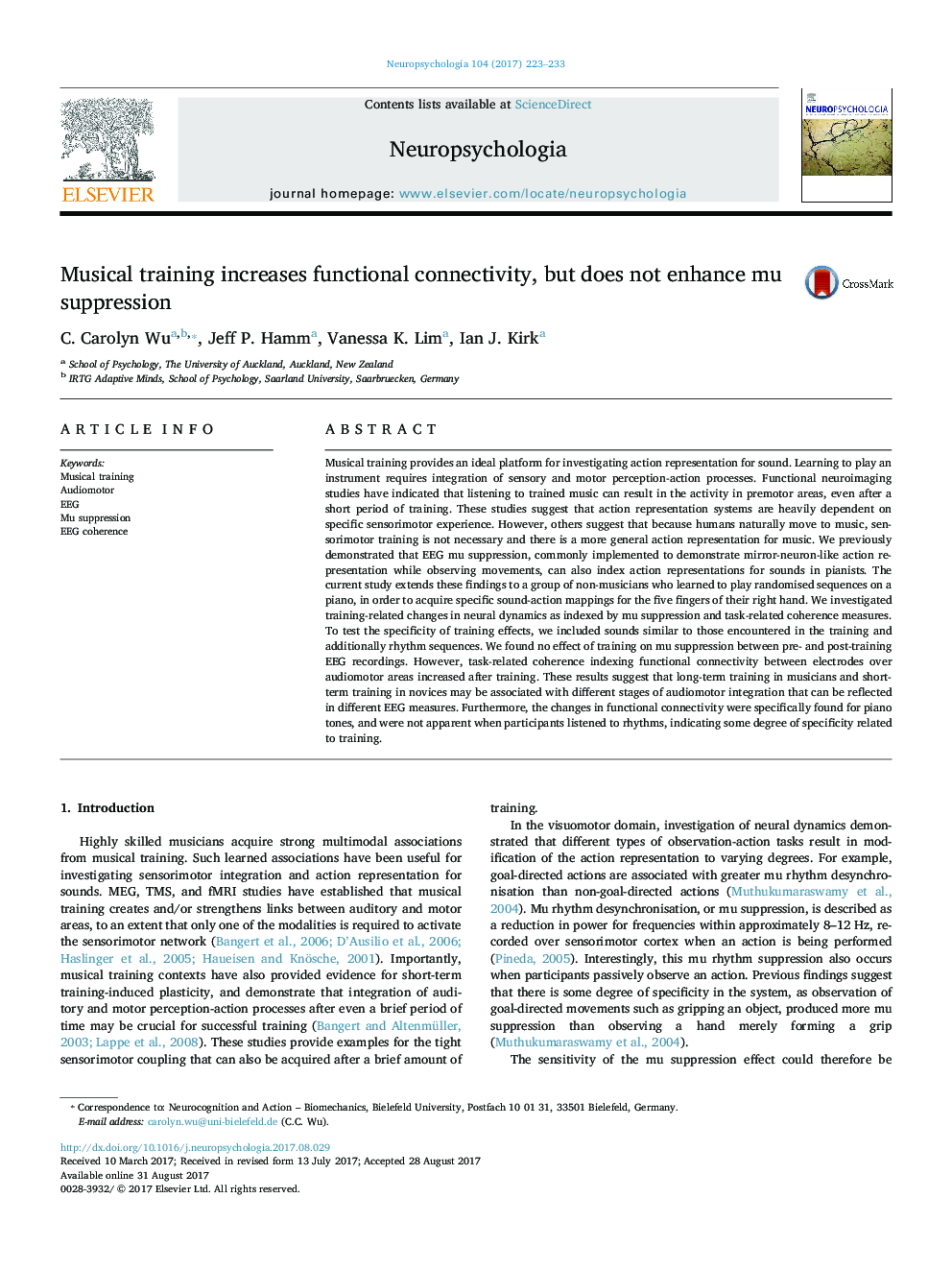| کد مقاله | کد نشریه | سال انتشار | مقاله انگلیسی | نسخه تمام متن |
|---|---|---|---|---|
| 5045126 | 1475551 | 2017 | 11 صفحه PDF | دانلود رایگان |
- Non-musicians underwent piano training, to acquire specific sound-action mappings.
- Training-related action representation for sounds was examined using EEG measures.
- EEG mu suppression, indexing action representation, was not enhanced post-training.
- Task-related coherence increased only for trained piano tones and not rhythms.
- Influence of individual variation and success in training needs further investigation.
Musical training provides an ideal platform for investigating action representation for sound. Learning to play an instrument requires integration of sensory and motor perception-action processes. Functional neuroimaging studies have indicated that listening to trained music can result in the activity in premotor areas, even after a short period of training. These studies suggest that action representation systems are heavily dependent on specific sensorimotor experience. However, others suggest that because humans naturally move to music, sensorimotor training is not necessary and there is a more general action representation for music. We previously demonstrated that EEG mu suppression, commonly implemented to demonstrate mirror-neuron-like action representation while observing movements, can also index action representations for sounds in pianists. The current study extends these findings to a group of non-musicians who learned to play randomised sequences on a piano, in order to acquire specific sound-action mappings for the five fingers of their right hand. We investigated training-related changes in neural dynamics as indexed by mu suppression and task-related coherence measures. To test the specificity of training effects, we included sounds similar to those encountered in the training and additionally rhythm sequences. We found no effect of training on mu suppression between pre- and post-training EEG recordings. However, task-related coherence indexing functional connectivity between electrodes over audiomotor areas increased after training. These results suggest that long-term training in musicians and short-term training in novices may be associated with different stages of audiomotor integration that can be reflected in different EEG measures. Furthermore, the changes in functional connectivity were specifically found for piano tones, and were not apparent when participants listened to rhythms, indicating some degree of specificity related to training.
Journal: Neuropsychologia - Volume 104, September 2017, Pages 223-233
